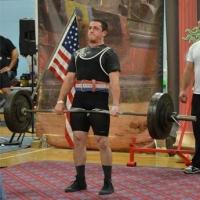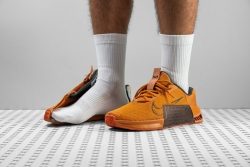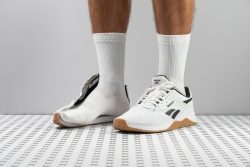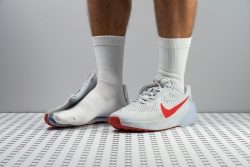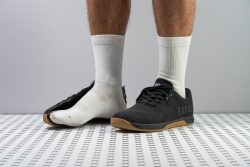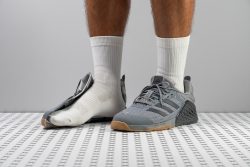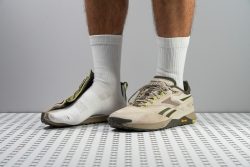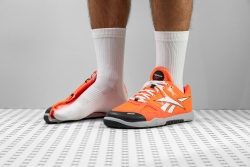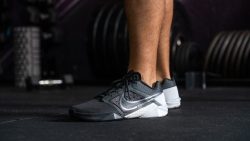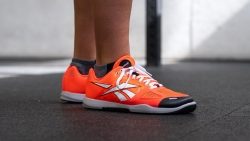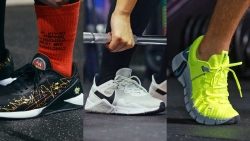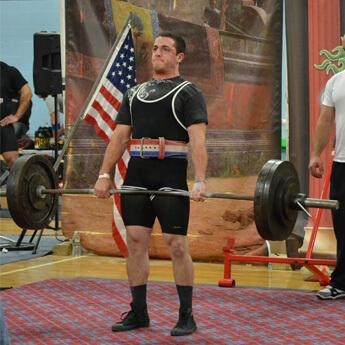7 Best Crossfit Shoes
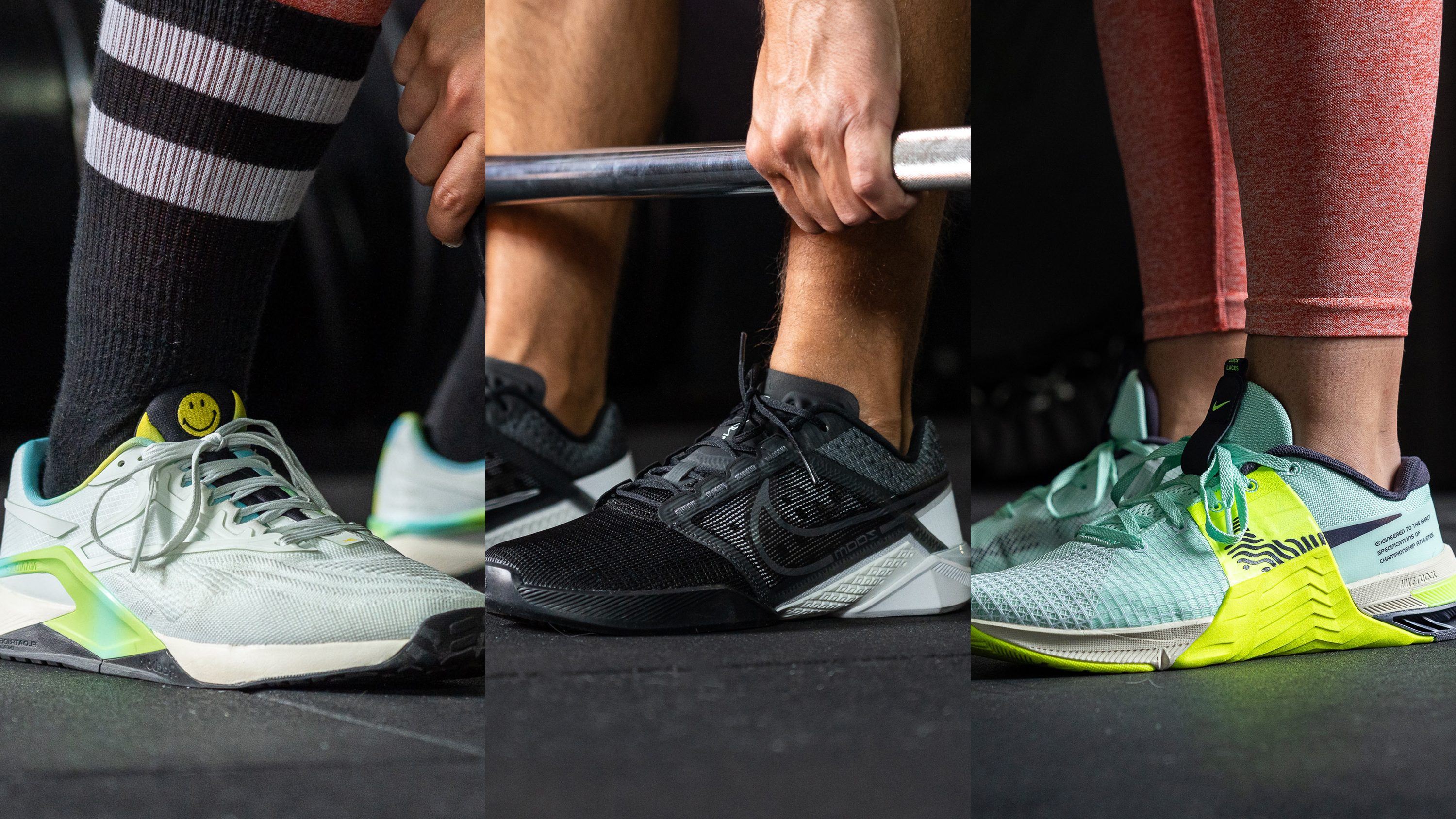
We buy shoes ourselves. We earn commissions when you buy through us, at no extra cost. Why trust us
A Crossfit session involves a lot of different movements, from a warmup run to a series of box jumps, from holding a plank to lifting 400 lbs. That’s why Crossfit shoes must live up to a large span of expectations.
Most Crossfit shoes host all the necessary features to face demanding training sessions and competitions. But there is also room for variety as some shoes are best for heavy lifting, some are a bit lighter and more cushioned for cardio, and some are comfortable enough for all-day wear.
We have tested Crossfit shoes in the gym and in our lab. Because of that, we're proud to showcase here our best picks in different categories.
How we test crossfit shoes
To achieve the most objective and data-backed shoe reviews on the web, we do the following:
- We buy each CrossFit shoe we want to test with our own money. No sponsorships allowed.
- We get firsthand experience training in the shoes. We like to explore their versatility. Therefore, we use them in as much high-intensity training as we can, dedicating a significant amount of time to each activity: jumping, sprinting, cycling, deadlifting, squats, and more.
- We split open the shoes and perform various lab tests. These lab tests almost always support what we experience while working out in the shoes. This also gives us different quantitative data that we can interpret qualitatively.
Best Crossfit shoes overall
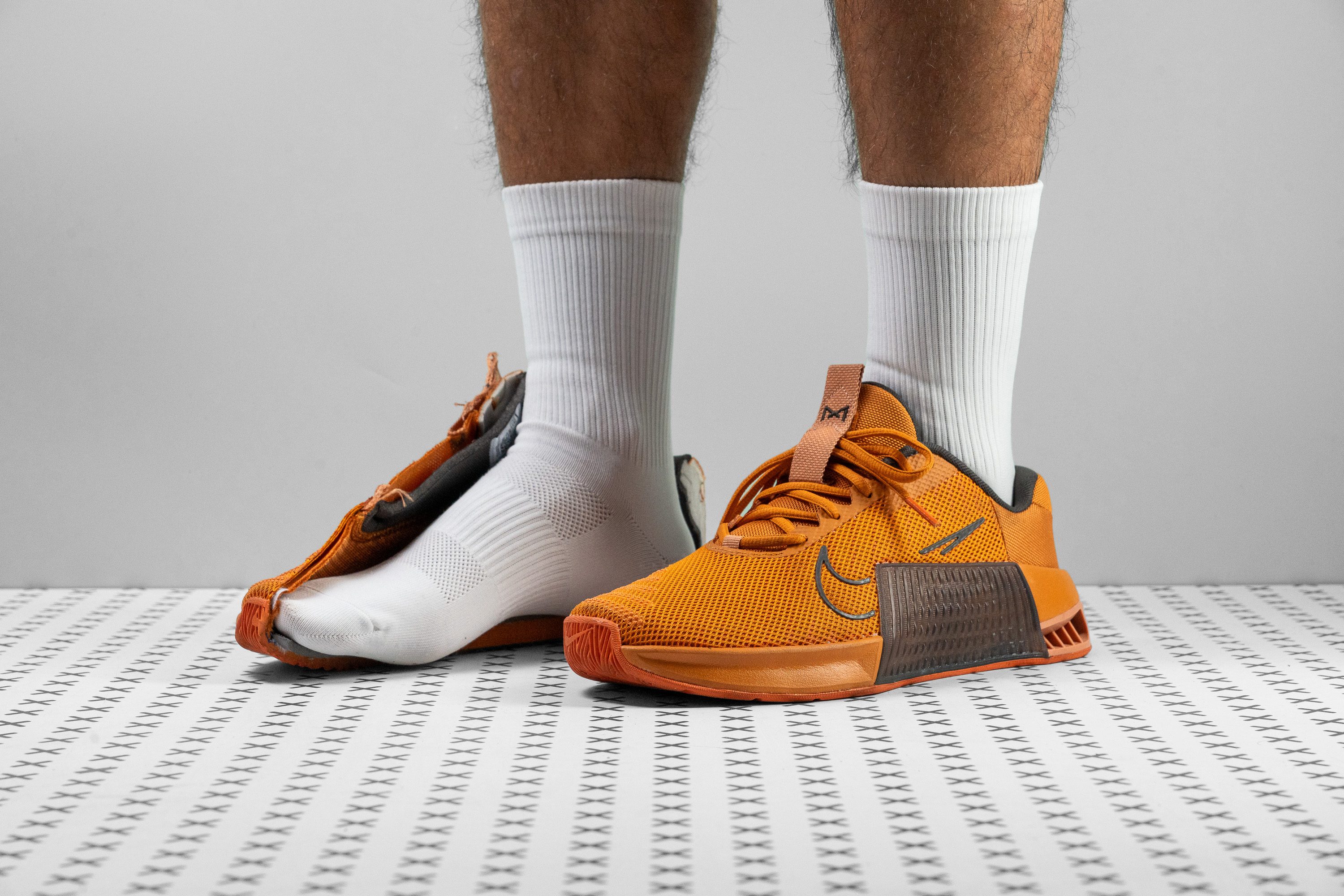














































What makes it the best?
We discovered Metcon 9 offers the best features for CrossFit, deserving to be crowned as best overall among CrossFit trainers in our lab records. It's a confidence booster with the superior stability and grip it offers, holding down our feet well when it’s time to lift. It displays signs of durability and offers flexibility for various WODs.
Despite the absence of a raised heel, Metcon 9 shines in weightlifting. We measured a 5.5 mm drop in the lab, more levelled than the 6.1 mm average. Its wide and supportive base keeps us planted to the ground, whereas its sturdy sidewalls and protective upper establish a firm foothold for stability. It even has Hyperlift — a sturdy, non-compressible TPU plastic under the heel for extra support when lifting heavier loads.
Metcon 9 gives the flexibility and grip we need for burpees and plyometrics. In our bend test, it's 15.0% more flexible than average. Meanwhile, the outsole bites through the gym floor, ensuring we can focus on our workout without wobbles. It shows no signs of wear, so we expect it to be durable. Our durometer confirms the 91.0 HC rubber is harder than the 85.2 HC average. A tougher outsole means it can take a lot of beating.
Unfortunately, Metcon 9 missed out on breathability. It feels too stuffy for tropical weather and sweaty indoor sessions.
Pros
- Exceptionally stable for weightlifting
- One of the most durable cross-trainers
- The best shoe for rope climbs
- Reliable foot containment
- Very comfortable in-shoe feel
- Nice grip on gym floors
- Accommodates wide feet (finally!)
- Surprisingly flexible
Cons
- Heavier than average (and previous Metcons)
- Not great for cardio workouts and rope jumps
- So-so breathability
Crossfit shoes with the best comfort
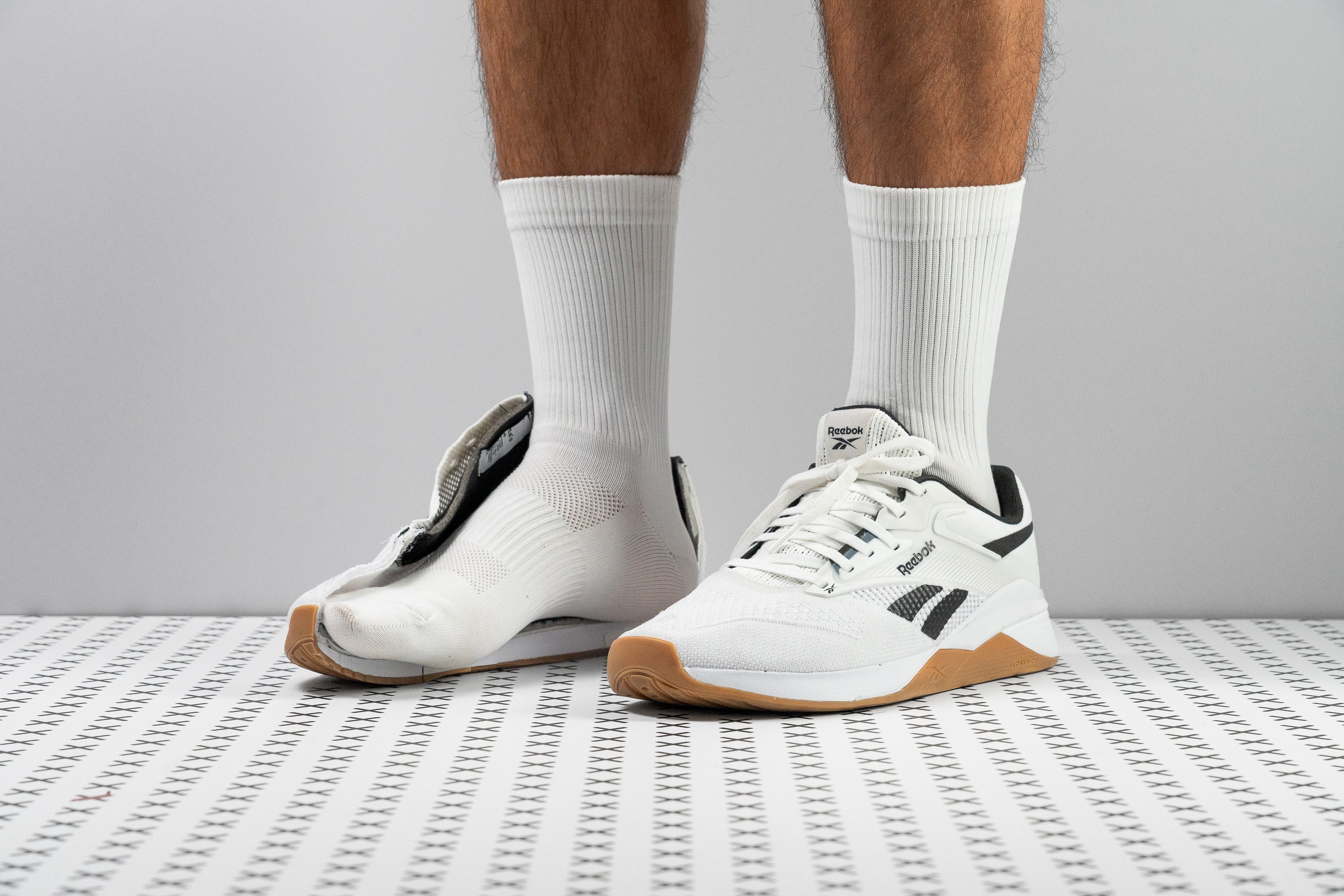










































What makes it the best?
The Reebok Nano X4 lightens the load of brutal CrossFit sessions by delivering impressive breathability and plush heel cushioning, ensuring the best comfort during our heated workouts. Our lab reveals its robust build and excellent containment add crucial support, enhancing its suitability for intense training sessions while remaining bendy enough for other exercises.
In our smoke test, the Nano X4’s Flexweave scored a solid 4/5, ensuring consistent airflow and freshness during indoor sessions as the heat escapes easily. Moreover, the upper resisted our Dremel amazingly and received a 4/5 durability score.
The platform delivers a healthy balance of cushioning and support. We felt close to the ground but still had a good layer of foam to perform jumps with impact protection. Furthermore, our HA durometer revealed a softer 27.0 HA cushioning under the heel measuring 10.0% softer than the main midsole foam.
The X4 impresses not only with its comfort but also its stability, boasting a stiff heel counter and excellent torsional rigidity, both scoring 4/5 in lab tests. The Lift and Run Chassis securely anchors our feet during static and dynamic exercises, while the midsole maintains flexibility for lunges and planks, matching the average bend test score in our lab.
However, its well-rounded nature means it lacks the support for extremes like heavy weightlifting and longer running sessions. Those in serious training should invest in workout-specific shoes.
Pros
- Fantastic wear resistance
- Great balance of cushioning and stability
- Feels grounded and supportive
- Secure foot lockdown
- A fully-gusseted tongue (finally)
- Nice breathability
- Lighter than the X3
- Great grip on gym floors
Cons
- Not for heavy lifting
- Not for wide feet
Best Crossfit shoes for cardio
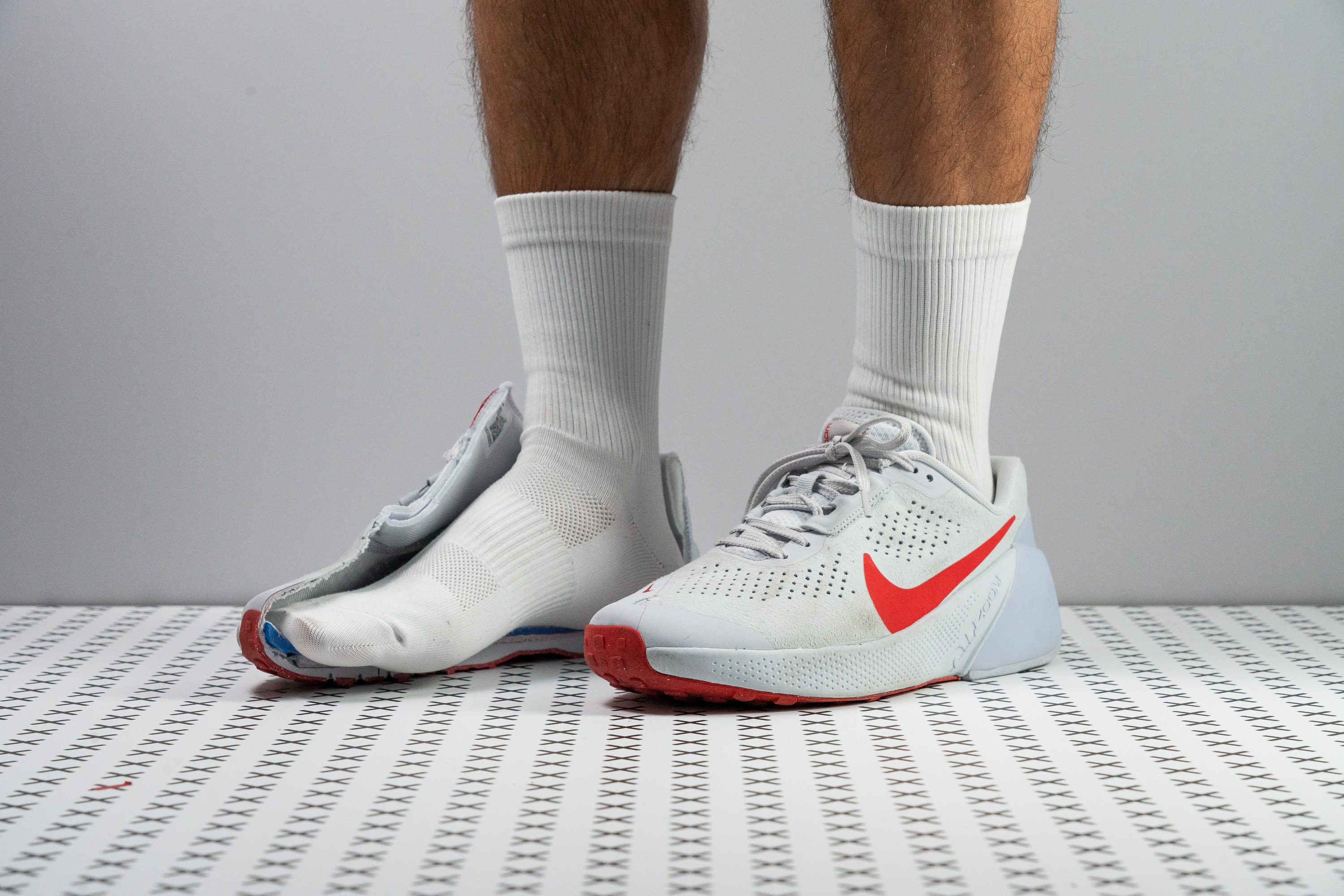











































What makes it the best?
Nike Air Zoom TR 1 has an explosive yet supportive midsole that makes it our ultimate cardio CrossFit shoe in the lab. Its energy return is undeniable in our workouts, allowing us to sustain repetitive jumps with less effort and pain while offering a sense of security when lifting through its reliable traction and stability.
At the forefront is the lively midsole that includes an Air Zoom unit for consistent power and energy. The stack had a good mix of cushioning and ground feel, infused with a bouncy and velvet foam for comfort. Our durometer reveals it’s 26.3% softer than average, ensuring a zero-pain experience even if we extend our workout.
We felt surefooted as we did jump ropes, burpees, planks, and lifts. The outsole gripped slippery gym floors impressively, and our durometer reveals why: the rubber is 8.8% softer, and therefore stickier, than average. Surprisingly, it didn’t sacrifice durability as it performed at par with our current average in our Dremel test.
The toebox also scored a flawless 5/5 durability rating, enhancing a more secure ride through its supportive structure. While most shoes wreak havoc, this Nike only showed an insignificant scratch. Unfortunately, its strength comes at the expense of breathability. The lack of airflow adds fuel to the fire of our already-heated workouts. We recommend trying another shoe for summer training.
Pros
- Dependable bite on gym floors
- Pretty durable toebox
- Good impact protection
- Nice lateral stability
- Secure heel hold
- Smooth heel-to-toe transitions
- OK for occasional outdoor use
Cons
- Not breathable at all
- Not for heavy lifting
- Not for heavy lifting
Best lightweight Crossfit shoes
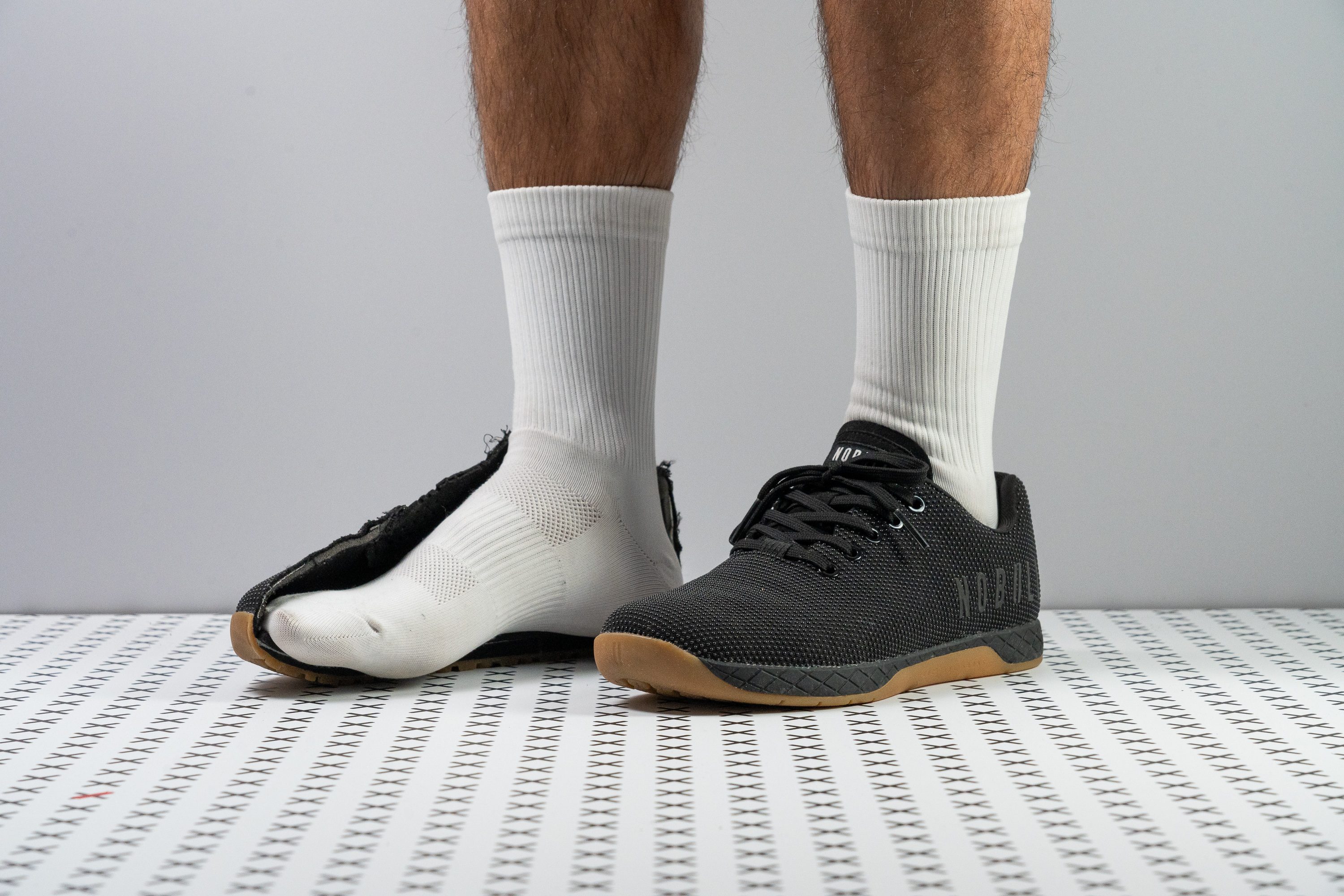

































What makes it the best?
In the world of training shoes, where the average weight is 11.5 oz (326g), the NOBULL Outwork is a light trainer at just 10.4 oz (294g). But the shoe is far from lightweight when it comes to its performance in a Crossfit box, as its fantastic flexibility, solid stability, and outstanding durability make it our top lightweight Crossfit trainer.
The NOBULL Outwork features tremendous flexibility, which makes it a fabulous shoe to wear for HIIT workouts and agility drills. After putting it through our 90 degree bend test, we found that it is 16.9% more flexible than the average training shoe.
But the shoe still has enough stiffness to be a stable lifting shoe. Its midsole is 24% firmer than the average training shoe, and we felt it hardly compressed when lifting moderate weights on our power and Olympic lifts. Moreover, the shoe has a fairly flat platform, offering optimal ground contact.
Meanwhile, the SuperFabric upper lives up to its name as it is extremely durable. Even rope climbs barely scratch the incredibly tough material, so it will take some serious abuse inside the box to wreck the upper.
However, that super-durable upper comes at the cost of breathability as our feet got quite hot, particularly after high-intensity workouts. Neither smoke nor light could pass through the upper in our lab tests, which is why we graded the shoe's breathability the lowest score of 1 out of 5.
Pros
- Versatile for any workout
- Premium Crossfit trainer
- Comfortable for all-day wear
- Grips various surfaces and rope
- Sturdy for moderate weightlifting
- Easy to clean
- Cushioned enough for jumps
- Highly durable upper
- Simple design with plenty of colorways
Cons
- Not so breathable
- Pricey
Most breathable Crossfit shoes
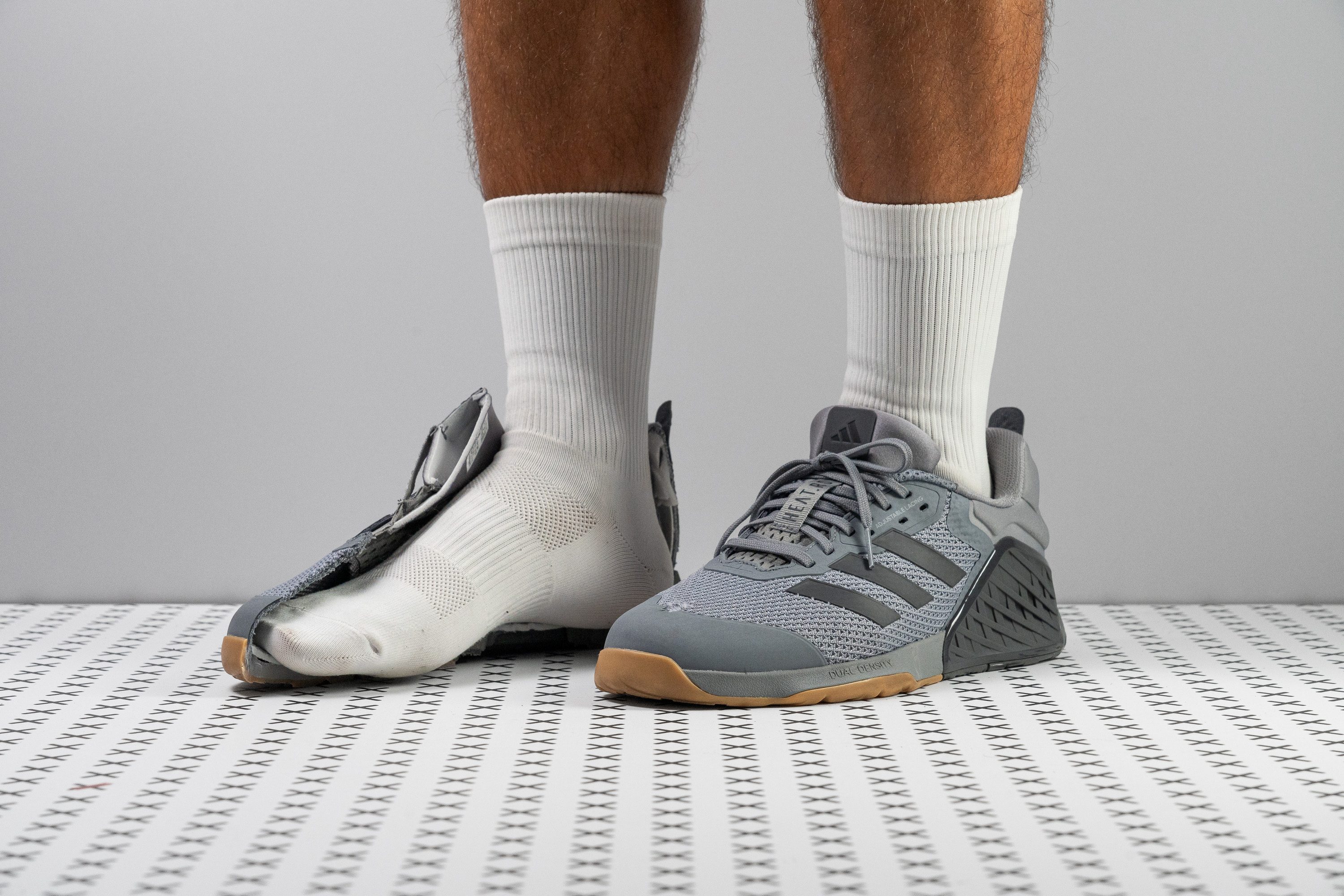



















































What makes it the best?
The Adidas Dropset 3 made our jaws drop with its remarkable foothold and top-level ventilation. Its permeable upper and HEAT.RDY technology brought sheer delight to our intense workouts, making it our best breathable CrossFit shoe in the lab. Its structured elements kept us unshakingly stable without overpowering rigidity.
Our feet felt refreshed even during heated sessions because of the flow-through upper and the unobstructed elements in the sole. It includes a large aperture in the middle for airflow and is complemented by. a perforated insole, which explains its 5/5 breathability rating in our lab.
Dropset 3 has the perfect set-up for lifting. Its grounded 22.6/14.8 mm stack has a dual-density configuration: a firm 41.0 HA foam in the heel that won't compress under heavy loads, and a softer 21.5 HA in the forefoot for cushioned landings during repetitive jumps. Besides that, the GeoFit Sensepods in the ankle area secured our feet in place.
In addition, the forefoot measures a wide 116.9 mm for enhanced stability. Even underfoot, the Adiwear outsole has the Traxion pattern to ensure solid braking power and control. It felt impossible to lose our balance with this trainer.
However, we can’t recommend this shoe for more cardio-focused workouts since its 12.1 oz (343g) build will feel too bulky for this type of exercise.
Pros
- Exceptional stability for lifting and lateral movements
- Very wide and grounded platform
- Extra durable and grippy outsole
- Very secure foothold
- Flexible enough for plyometrics
- Fantastic breathability
- Accommodating toebox
Cons
- Not great for running and walking (clunky heel)
- Can't be worn outside because of sole apertures
Best Crossfit shoes for outdoor workouts
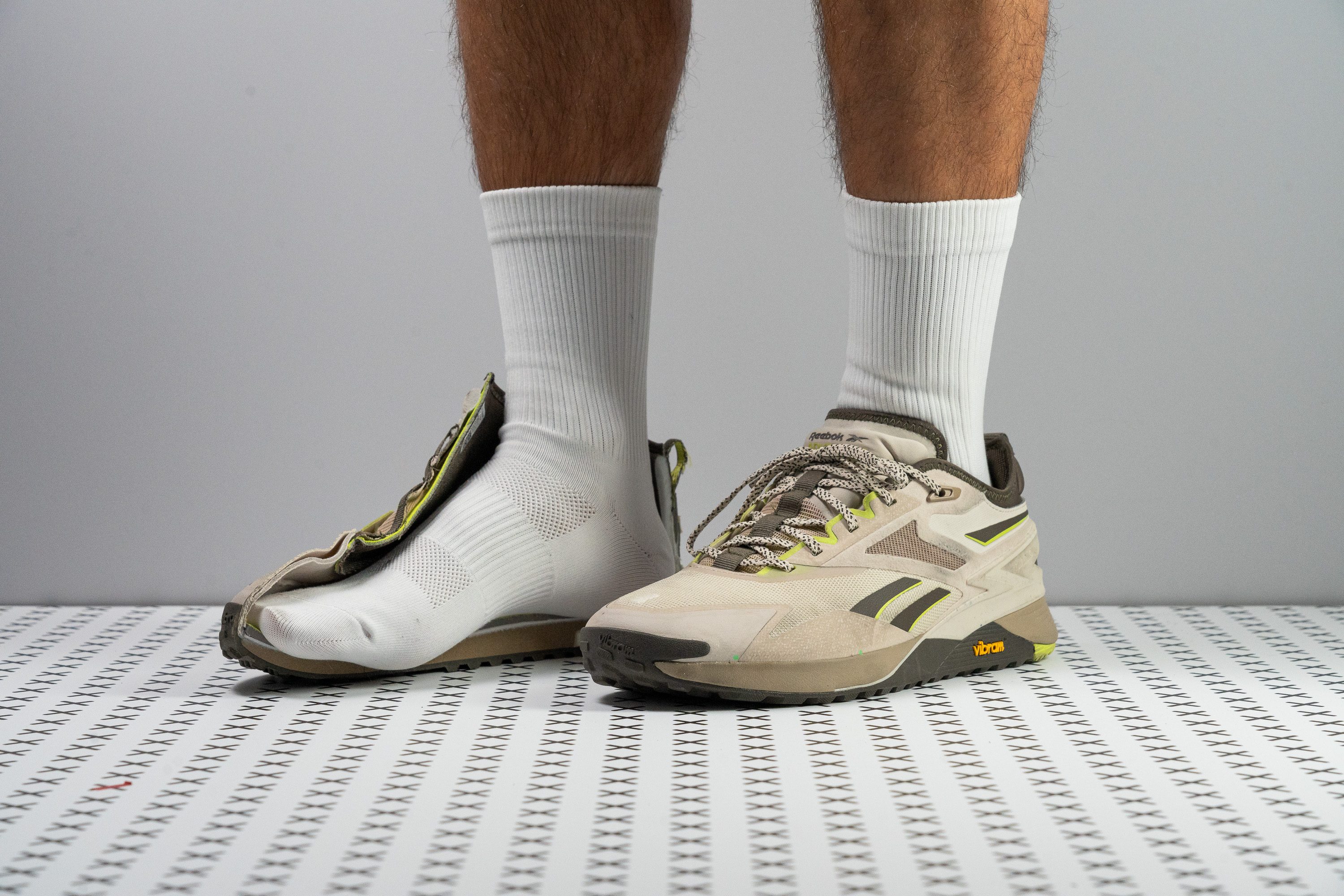





































What makes it the best?
The amazing Reebok Nano X3 Adventure allowed us to do a lot of exercises, including rope climbing which many trainers easily fall short in. We were also impressed by the hardness of its outsole and the immense durability of its upper. Because of all these benefits, the Nano X3 Adventure easily climbed up our list as the best CrossFit shoe for outdoor workouts.
Getting a nice grip on any surface was never a problem for this Reebok trainer. Whether we were exercising on concrete or hardwood floors, we were able to stop on a sixpence whenever needed. Climbing stairs and even ropes was never a problem.
Registering 89.4 on our HC durometer, the outsole of this trainer is significantly harder than average, which only got a rating of 84.0. This hard outsole helped us withstand the roughness of the outdoors.
The uber-durable upper was simply jaw-dropping. Twelve minutes of high-pressure Dremel drilling barely left a noticeable mark on the toebox. A perfect 5 it was!
It’s just too bad that we could never recommend the Reebok Nano X3 Adventure to fitness enthusiasts with sweaty feet. This shoe was pretty awful when it came to breathability, and it got the lowest 1 over 5 from us in that aspect.
Pros
- Perfect gym-to-trail shoe
- Dependable traction
- Provides good impact protection
- Offers enough court feel
- Super durable upper
- Just enough stability for exercises
- Feels light
- Fairly flexible structure
Cons
- Poor breathability
- Pricey if not used outdoors
Crossfit shoes with the best value
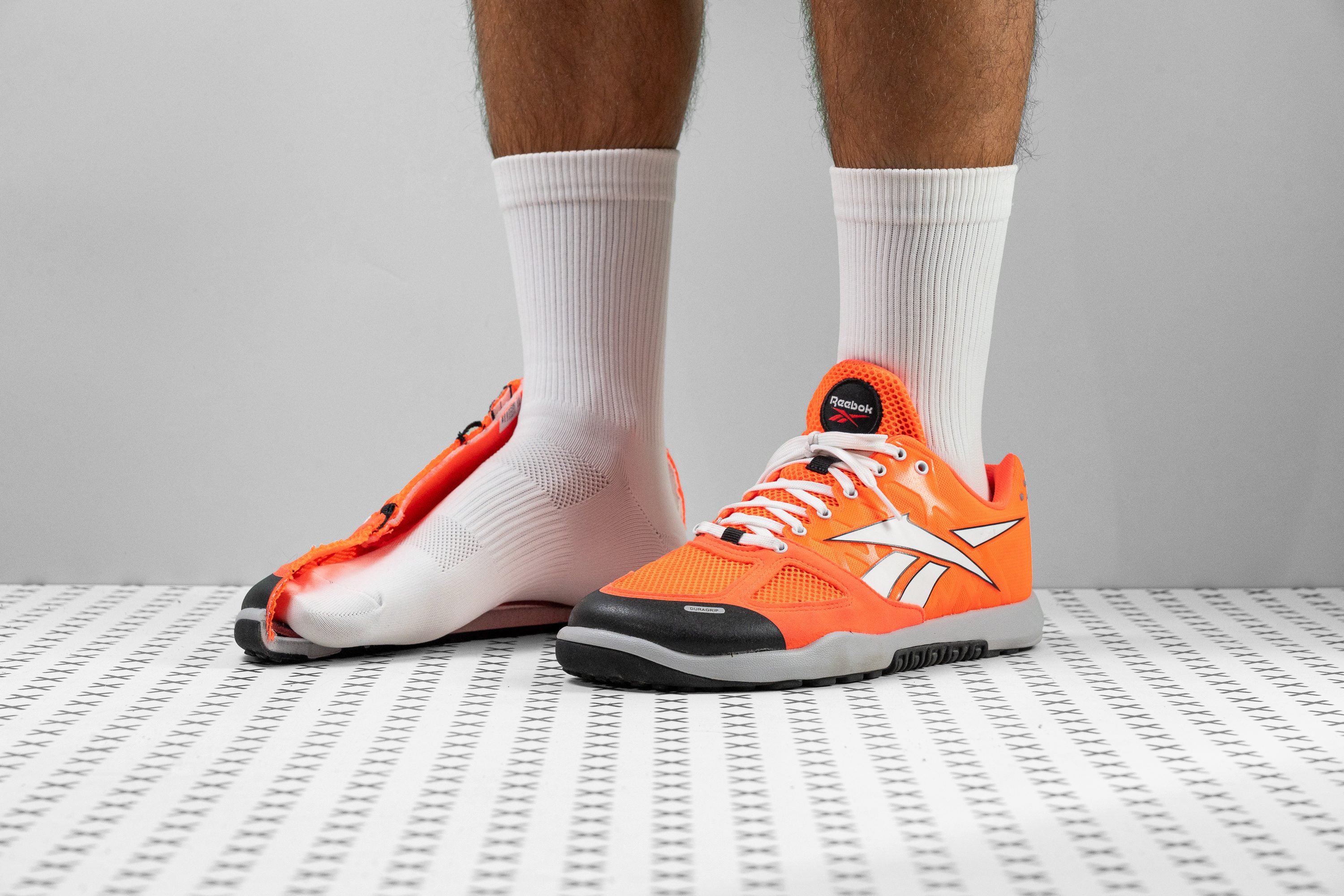







































What makes it the best?
At £120 per pair, the Reebok Nano 2.0 is just around the average price for CrossFit shoes which is £130. But the performance of this shoe isn’t average at all. Its amazing breathability truly left no chance for sweat. Its intense flexibility allowed us to move with much more ease, especially when there was a need to twist or go around bends. Finally, its nicely firm midsole gave us the chance to speed up without exerting so much effort.
We dissected this shoe in the lab and placed its upper material on top of a light source. The moment the light shone from below it, we saw gigantic ventilation holes, perfectly explaining the immense amount of breathability that we enjoyed. Hands down, the Nano 2.0 is a perfect 5 for ventilation.
A typical trainer would need 22.5N of force so it’s bent at 90 degrees. Our digital force gauge showed that this shoe needed much less than that, 11.3N to be exact. Its flexibility allowed for more natural flexions of our feet, making this shoe such a pleasure to wear.
The midsole of this shoe registered a 31.0 on our HA durometer, significantly higher (therefore firmer) than the 27.0 average. This firmness not only helped with acceleration because of its springy effect in motion, but it also aided us in attaining stability during lifting because of its inherent anti-wobble properties.
It’s just too unfortunate that the durability of the upper was not able to keep up with the greatness of the Nano 2.0 from Reebok. There was already significant damage after a couple of seconds of Dremel drilling.
Pros
- Pleasantly lightweight
- Low-profile and minimal
- Grounded platform
- Highly breathable
- Very flexible
- Solid grip
- Spacious toebox
Cons
- Lacks cushioning for jumps and runs
- Upper is not durable
- Tongue slips
What is a Crossfit shoe?
Crossfit shoes are the most versatile, stable, and sturdy category of cross-training shoes.
Priced about £20 higher than regular trainers, they are more suitable for athletes who train regularly and want to achieve the highest performance in Crossfit. As a beginner, you don't have to invest in a dedicated Crossfit shoe just yet.
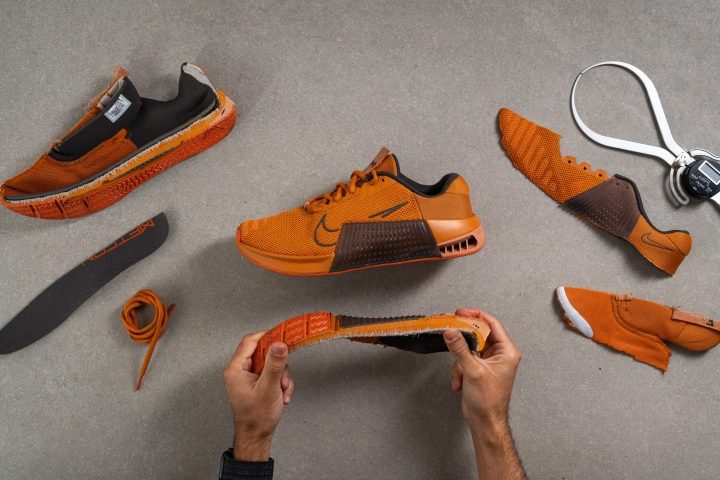
Several key features set a Crossfit shoe apart from a regular training shoe:
- low profile and minimal cushioning
- enhanced support and stability
- higher durability (+protection for rope climbs)
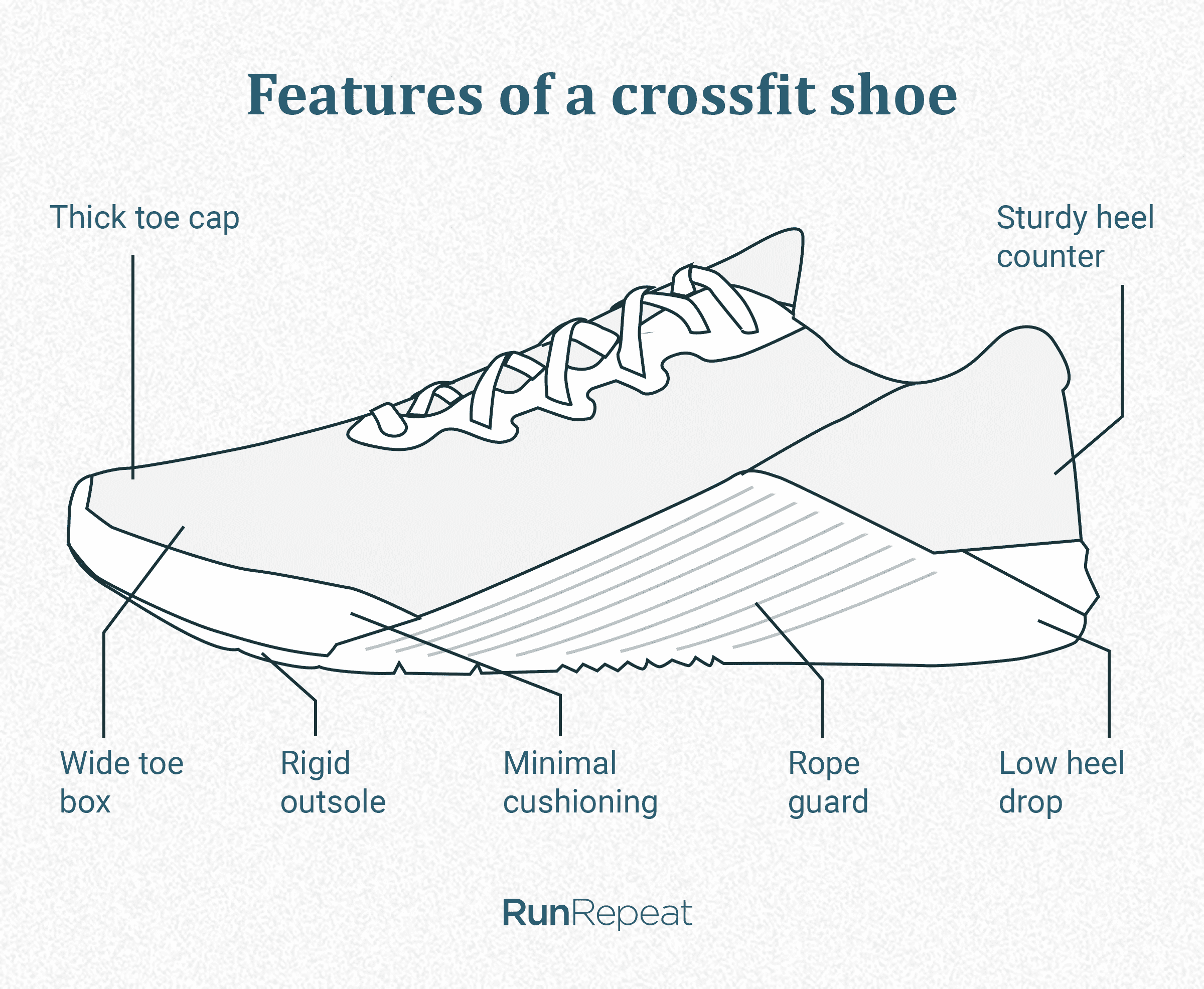
Cushioning in Crossfit shoes
Pressing a heavy barbell over your head, you want to feel firmly planted on the ground. There should be no squish or wobbling in your feet whatsoever.
That's why Crossfit shoes are built with the following midsole parameters:
- low heel stack (no more than 27 mm)
- low heel-to-toe drop (no more than 8 mm)
- firm cushioning
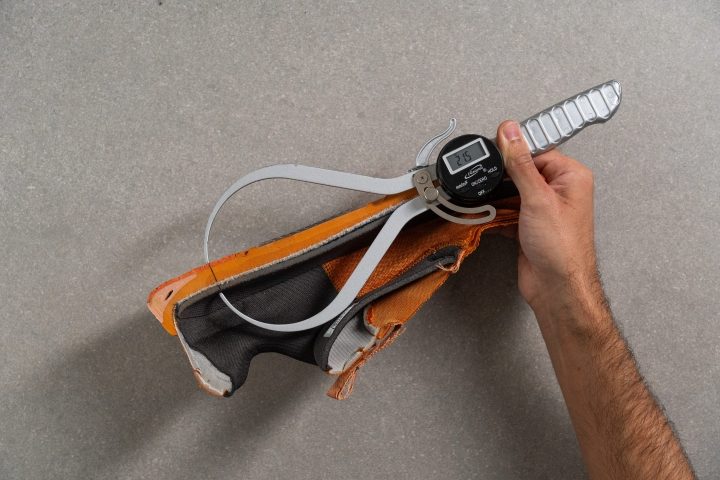
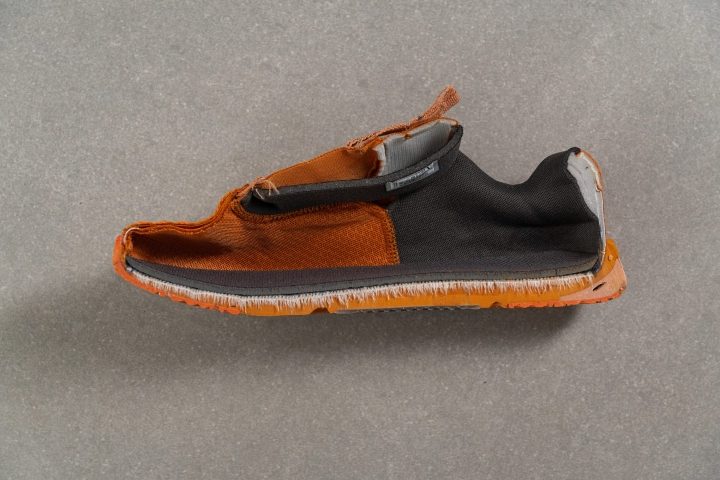
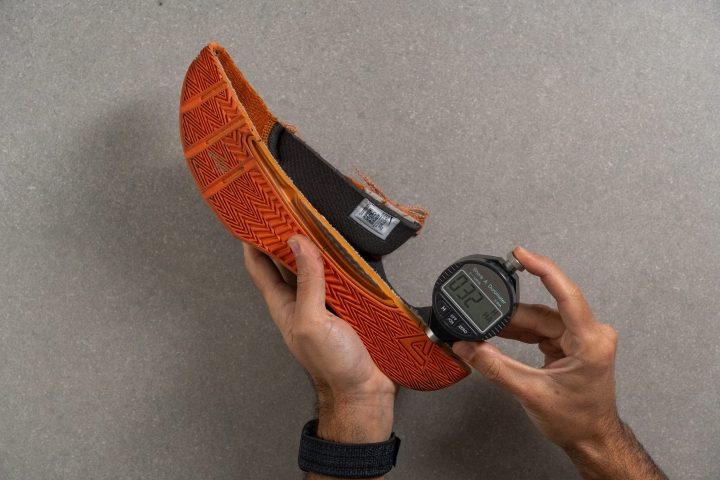
Based on our lab data, Crossfit shoe midsoles are 10% firmer compared to regular trainers and 20% firmer than running shoes on average. It makes them less compressible and as a result, more stable.
As you can see, there is variation within Crossfit shoes as well:
- if you want a more minimal, almost barefoot-like experience, go for shoes with a lower stack (<24 mm) and drop (<6 mm)
- if you prefer more cushioning for cardio and HIIT, opt for a higher stack (>24 mm) and drop (>6 mm) and softer foam (<25 HA*)
*Midsole softness: the lower HA reading means softer and the higher HA number means firmer.
Lateral support and stability
Stability is where Crossfit shoes undercut many other cross-trainers.
In addition to their firm and grounded platforms, these trainers are equipped with supportive components like sidewalls, shanks, sturdy heel counters, and more to keep the foot securely in place.
We assess the torsional rigidity of Crossfit shoes in a manual test.
We also check each shoe's heel counter stiffness with a squeeze and push.
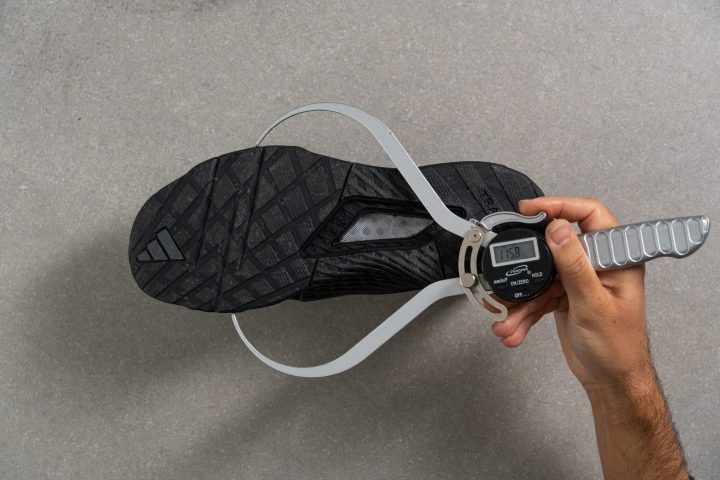
Crossfit shoes with lower torsional rigidity (score: 1-2) are less stable but more flexible. We can recommend them for fast-paced workouts with lots of agile footwork.
Durability of Crossfit shoes
There are a few durability features that usually come with Crossfit shoes:
- rope guards that shield the shoe's upper and sole from rope burn when descending
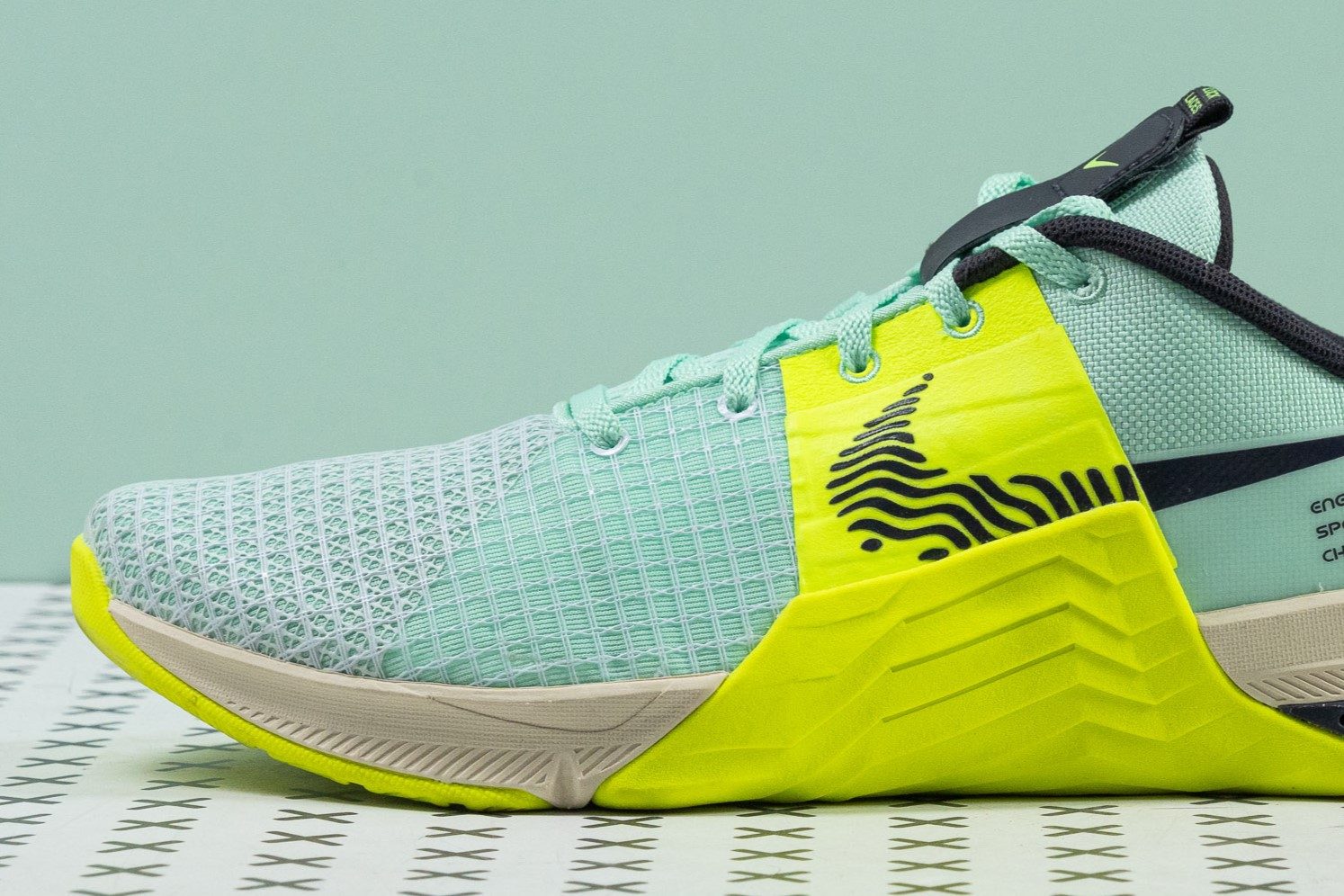
- additional protective overlays that minimise wear and tear on the upper material
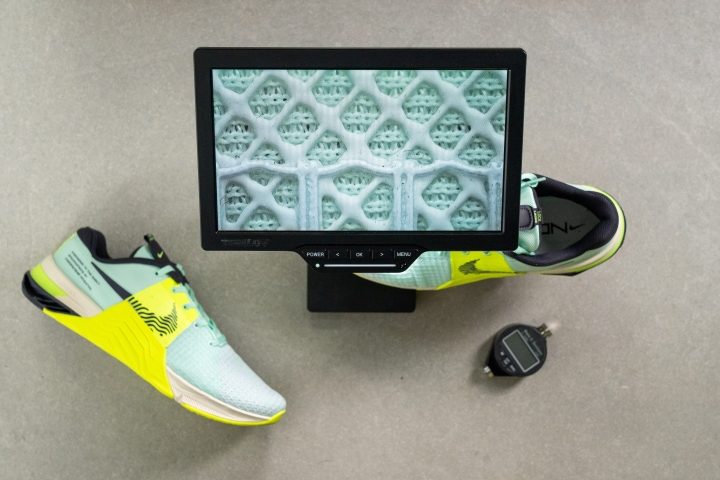
We use a Dremel with a sandpaper tip to test the abrasion resistance of each Crossfit shoe in our lab.
Our lab results show that Crossfit shoes score higher in the durability department compared to standard cross-training shoes.
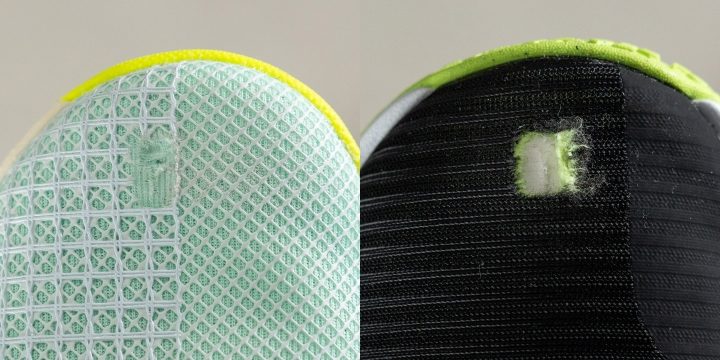
*Outsole durability: the lower number means more durable. It indicates how many millimetres of outsole rubber have been burnt by our Dremel.
Consider the weight
The weight of Crossfit shoes ranges from 10 oz (285g) to 13.5 oz (385g), which is on the heavier side of cross-training shoes.
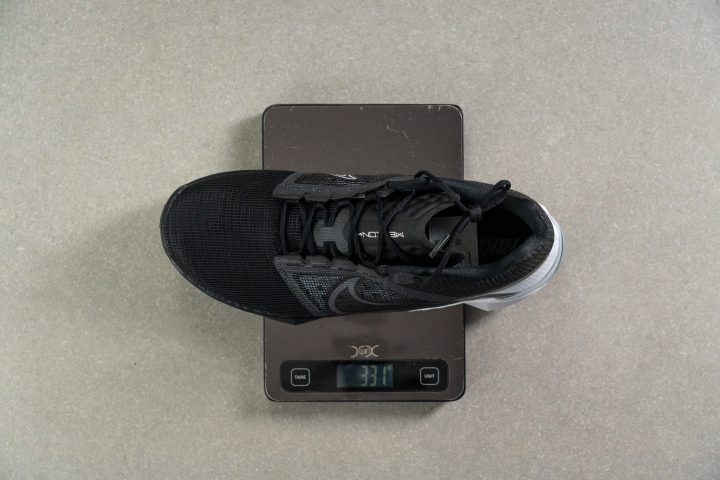
But why did these shoes get so heavy? Well, all the features that make them irreplaceable for Crossfit add up to the bulk of these shoes: wear-resistant overlays, stiff supportive components, wider platforms, rope guards, and more.
The industry's flagship Crossfit shoes tend to weigh more (over 12 oz) but you can be sure that they provide plenty of stability and support.
Lighter Crossfit shoes, on the other hand, are more suitable for short runs, and jumping exercises, and in some cases provide better ground contact.
TIP: You don't have to choose one over the other as there are more than a few solid Crossfit shoes in the middle.
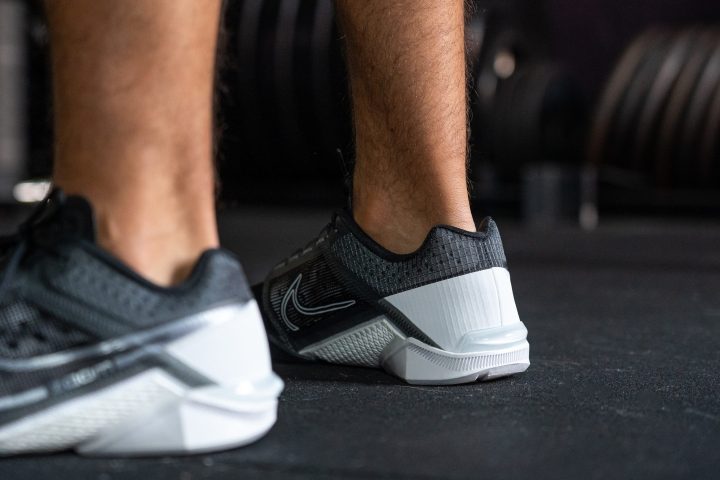
How to find breathable Crossfit shoes
Because of their reinforced uppers and protective overlays, Crossfit shoes are not the most breathable category of athletic shoes.
But having the heat and sweat trapped inside your gym shoes is not the most pleasant experience either. Not to mention that it leads to bad odour, blisters, and other misfortunes.
In our lab, we perform a series of tests to determine the ventilation capacity of each Crossfit shoe:
- we use a smoke-pumping machine to check the shoe's capacity to let the heat out
- we hover the shoe's half-cut upper over the light to see its ventilation areas
- we take a closer look at the fabric through our microscope to check its anatomy
In the end, each Crossfit shoe's breathability is rated on a 1-5 scale, where 5 is the most breathable.
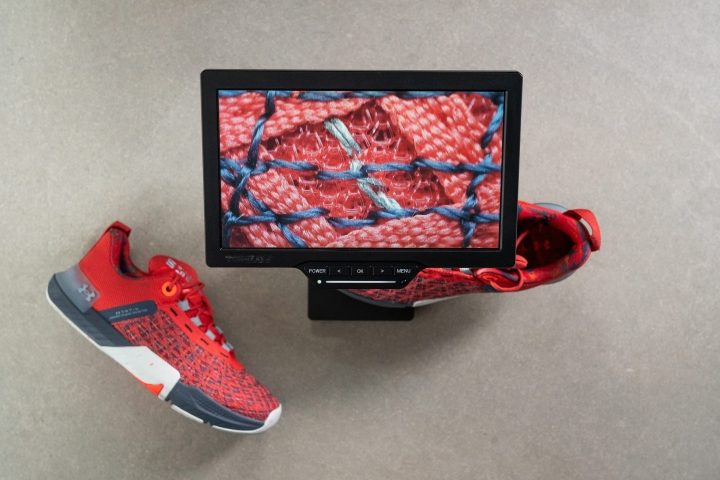
Crossfit shoes vs. weightlifting shoes
These days, Crossfit shoes have advanced so far in their level of stability that most athletes don't even consider lifting shoes anymore. Why bother if you can enjoy the convenience of having just one pair of trainers for everything you do at the gym (even lifting 400 lbs!)?
Just look at how much lateral stability both shoes have.
Lateral stability in a Crossfit shoe
Lateral stability in a weightlifting shoe
But no matter how stable Crossfit shoes get, there are a few core characteristics of lifting shoes that can never make these two shoes equal:
- heel elevation
- non-compressible platform
- entirely flat and stiff base
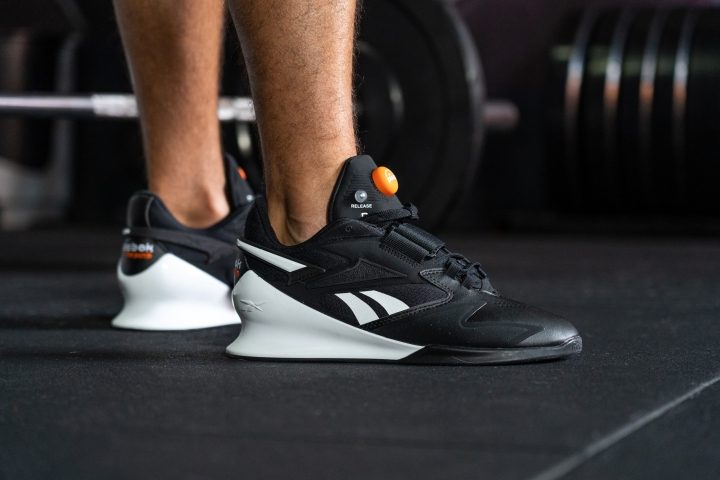
FAQs about Crossfit shoes
How will I know if a training shoe is appropriate for CrossFit?
Brands don’t market their shoes using the Crossfit name because they are not licenced to do so. But they have found a way to work around this restriction by naming their CrossFit-dedicated lines of shoes after specific terms used within the CrossFit community like Nike’s Metcon line.
Can you walk in Crossfit shoes?
Given their performance-oriented features and flat soles, Crossfit shoes aren’t intended for everyday use. They might be too expensive as well to wear casually. But they are flexible enough to be worn for many hours at the gym if you are coaching.
 Hiring remote: Content writer / review specialist in
Hiring remote: Content writer / review specialist in 